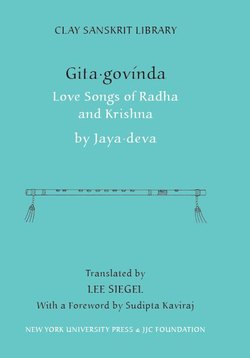Читать книгу Gita Govinda - Jayadeva - Страница 22
На сайте Литреса книга снята с продажи.
Оглавлениеin Gujarat and Maharastra, and the inhabitants of those villages are as proprietarily proud of Jaya·deva as anyone else.
The fact that Jaya·deva was, as he reiterates in his text, a professional poet, a kavi, whether in Bengal or Orissa (or, for that matter, in Gujarat or Maharashtra), is pertinent to an understanding and appreciation of his text. To be a kavi was to have a traditionally defined and highly idealized social role in Indian society. The poet, usually the son of a poet and a Brahmin, was, during the period of his studentship, rigorously trained in lexicography, grammar, prosody, and poetics. He would study Sanskrit and vernacular literatures and literary theory, the great epics, collections of mythological literature, and the shastras—those normative compendia of the ways and means of polity, religion, and sexuality. He would cultivate his wit, cleverness, and skill at manipulating words in such a way as to inspire aesthetic transport in sophisticated and erudite people of refined tastes. By doing so, he could earn patronage and a position in a royal court. Kings sponsored literary recitations, performances of plays, music, and dance, and granted awards and titles to the most accomplished poets, dancers, and singers. Jaya·deva was, as he exults in the introduction to his work, given the title of royal poet, “King of heavenly bards” (carana/cakravartin).
The period during which Jaya·deva composed the “Gita· govinda” was, both in Bengal under the Senas and in Orissa under the Gangas, one in which there was a revival and reaffirmation of traditional religious values and classical cultural ideals, with ample subsidies to encourage Sanskrit literary and artistic endeavors, and there was funding for the building of grand temples, lavishly ornamented with sculp- ________
